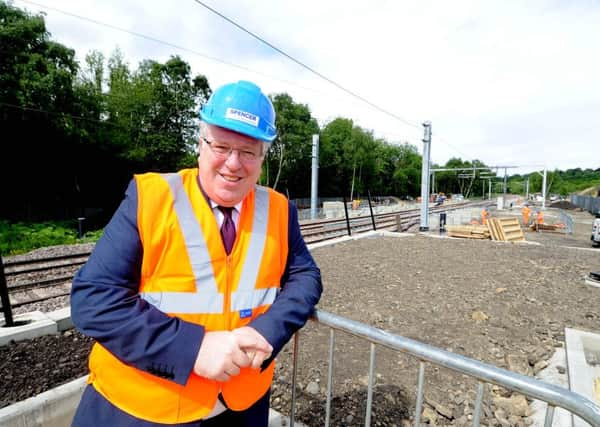The promise of a rail revolution which turned sour post-election


But alongside the gloom in his 2011 Autumn Statement, the Chancellor offered the hope of a sunnier future.
Savings would be invested in infrastructure and other projects which would strengthen the UK economy in the longer term.
Advertisement
Hide AdAdvertisement
Hide Ad“We will electrify the transpennine express between Manchester and Leeds,” he told MPs.
The full scheme, known as North Transpennine electrification, combined with improvements in the North West, promised to rapidly speed up journeys between York and Selby at the eastern end through Manchester to Liverpool in the West at an estimated cost of around £300 million.
This was a huge victory for those on both sides of the Pennines who had long argued that for decades there had been too much emphasis on improving north-south connections when there were huge economic gains to better join-up cities across the North of England.
And the good news did not stop there. In July the following year, then Transport Secretary Justine Greening unveiled proposals to create an “electric spine” through central England connecting Sheffield via an electrified Midland Main Line to the south coast.
Advertisement
Hide AdAdvertisement
Hide AdInvestment in transport to improve the North’s economic fortunes would become a central theme of the Chancellor’s plans, culminating in a speech last year where he set out his vision for a ‘northern powerhouse’ based on improving the connections between towns and cities so that together they could compete on the world economic stage.
But by the turn of this year there were already signs of trouble and that the completion date for transpennine electrification was slipping.
Put on the spot by the Commons Transport Committee in March, Transport Secretary Patrick McLoughlin told MPs: “Although 2019 was set as the date for completion, it is no longer viable and that date will slip, but it will slip into the early 2020s.”
The completion date was slipping, but no mention of problems so significant that a wholesale review of Network Rail’s investment plans would be needed and these key projects put on hold.
Advertisement
Hide AdAdvertisement
Hide AdIn fact, just days earlier Mr McLoughlin had taken delivery of a report by a task force he had set up to look at which routes should be next in line for electrification. He spoke of his desire to see a “rolling plan for further electrification” beyond 2019 when current projects were due to be completed.
Campaigners along Yorkshire routes including the Leeds to York via Harrogate line and the Calder Valley line, identified by the task force as priorities for action, believed their hopes of major investment were now in sight.
Transport investment in the North was also at the heart of the Conservatives’ efforts to defend key marginal seats. “Electrification of the railways is a key part of our investment programme, with work already underway across the North,” said the manifesto.
And yet just seven weeks after polling day, an ashen-faced Transport Secretary Patrick McLoughlin was in the Commons telling MPs Network Rail’s plans were in trouble and Midland Main Line and transpennine electrification were to be “paused”.
Advertisement
Hide AdAdvertisement
Hide AdHe was anxious to shift the blame onto Network Rail, announcing that directors would not receive bonuses and the chairman would be replaced by London’s transport commissioner Sir Peter Hendy.
However, there are uncomfortable political questions for the Government to answer over what Ministers knew before the election, what voters in marginal seats were told during the campaign and the decision to put transpennine and Midland Main Line electrification on hold just weeks after polling day.
And for Yorkshire rail passengers the most important question is a simple one: when will electrification, and the improved services it will bring, be completed on these vital routes?